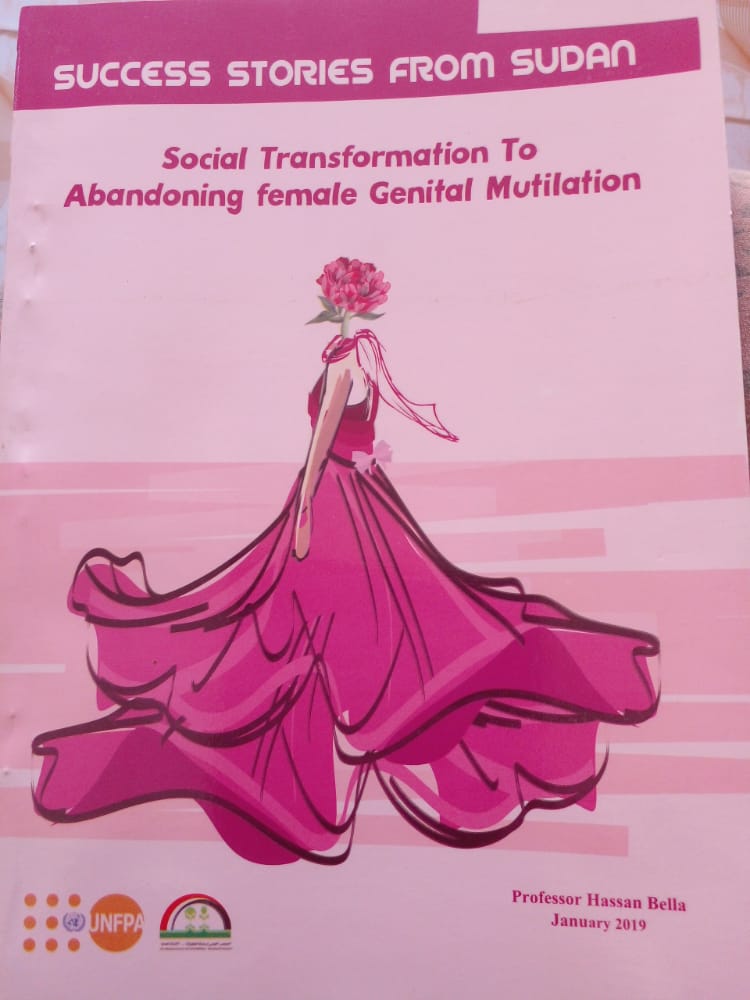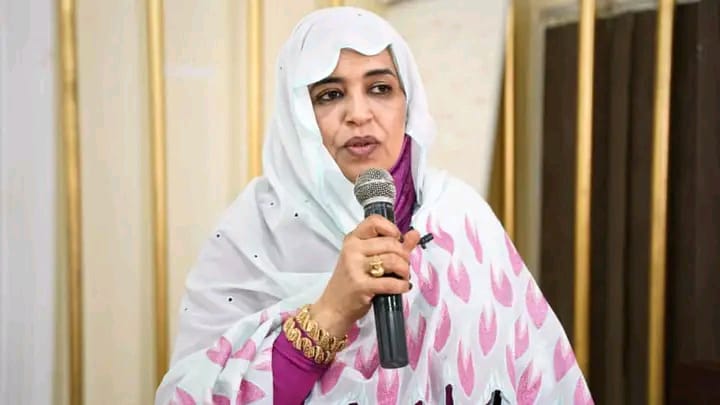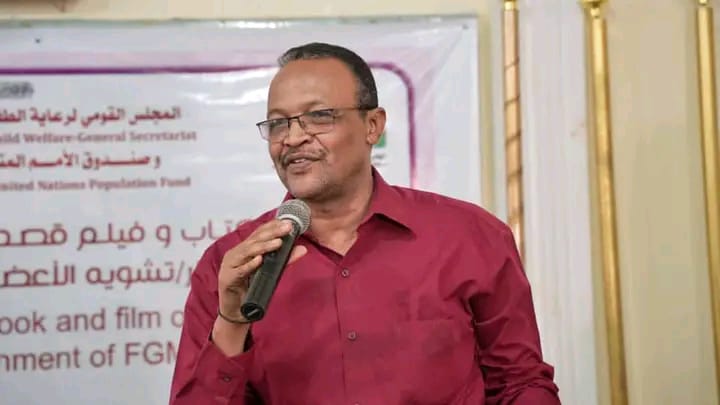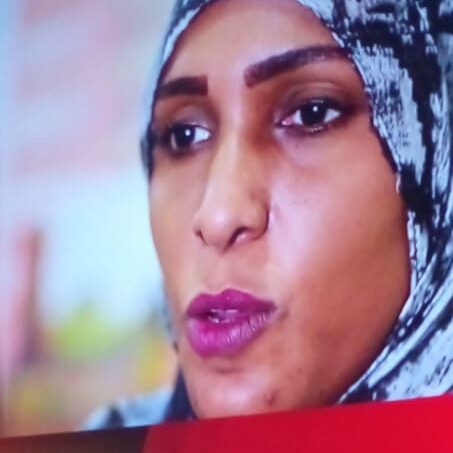
NCCW Launches (Book and Film): Success Stories of Abandoning Female Genital Mutilation (FGM)
Success Stories: Turning Outputs Into Outcomes

Haffiya Abdalla
FGM is deeply rooted in Sudanese and African communities. It existed thousands of years before Islam. currently, it is practiced by Muslims and non-Muslims alike. Formal and informal education and awareness dialogue are crucial in transforming societies to the abandonment of the practice.
Despite huge efforts over four decades, the complete eradication of FGM remains an unresolved problem. The pace of change remains slow. Addressing this NCCW and its partners are working earnestly to develop new approaches. This book’s launch is a success story from Sudan to Abandon FGM and the film is the beginning of more.
The National Council for Child Welfare (NCCW), in cooperation with the United Nations Population Fund (UNFPA), launched the book (Success Stories from Sudan to Abandon Female Genital Mutilation and the movie (My Girl: A Success Story) at the General Secretariat of the Council in Khartoum, in the presence of a group of media professionals, creators, including the poet Madani Al-Nakhli and Al-Tajani Haj Musa and director Shukr Allah Khalaf Allah.

Head of the National Association for Combating Harmful Habits, Wedad Aidarous, explained that the launching of the book and film is the result of efforts by the National Council for Child Welfare, the United Nations Population Fund, and a large number of partners, considering it a space for the print and visual media to focus on the success stories of abandoning the practice of female genital mutilation and cutting.
The representative of the National Working Group, Dr. Muhammad Zain Al-Hamidi said that reaching the stage of documenting success stories is one of the important files in Sudan in terms of following the scientific, medical and legal vision as the first line of defense to end bad practices and spread awareness.
Representative of the United Nations Population Fund, Dr. Habib Hamdouk, commended the efforts made to come up with documenting success stories in a book and a film, calling on media institutions to highlight the issues of abandoning female genital mutilation.
The book “Success Stories from Sudan to Abandon Female Genital Mutilation” contains success stories from the various states of Sudan.

The book was authored by Professor Hassan Bella, who explained in the introduction to the book that shedding light on success stories, learning from success while telling stories, and clarifying their implications in terms of knowing the reasons that called families to perform FGM.
Professor Bella divided success stories according to societal axes Religious, medical, health, legal, and media.
Professor Bella said the book includes stories from the majority of the 18 states of Sudan. He said this book narrates tales of success in an old and complex problem and demonstrates that abandoning this deep-rooted custom is extremely difficult but not impossible.
The coordinator of the book and film project, Alaa Al-Lider, added that the idea for the book and the film came because there is no documentation of success stories in Sudan

In addition to the great efforts of the NCCW and its partners to eradicate the practice of female genital mutilation from 2014 until now.
Alaa indicated that Professor Hassan Bella was chosen as a documenter of many stories, including the book (Midwives), and the secretaries of the state councils were collected from 18 states to document the success, the book was published in both Arabic and English.
The designer of the cover of the plastic book, Atef Wad Al-Hajj, explained that the idea of the cover came through brainstorming to choose the connotations of colors in an artistic form (a rose).
The director of the film ( My Girl….Success Stories of FGM in Sudan) Shukrallah Khalafallah stressed the role of the media in the ability of arts and culture to bring people together
The poet and ambassador of the Saleema Initiative, poet Tijani Hajj Moussa, pointed out the importance of attracting creators to deliver the message.

The poet Madani al-Nakhli agreed with him, adding that there is a state of awareness in society, and they praised the role of culture and arts in community awareness.
They affirmed their full commitment to advocating the abandonment of female genital mutilation and to contributing to community awareness through various forms of art.





